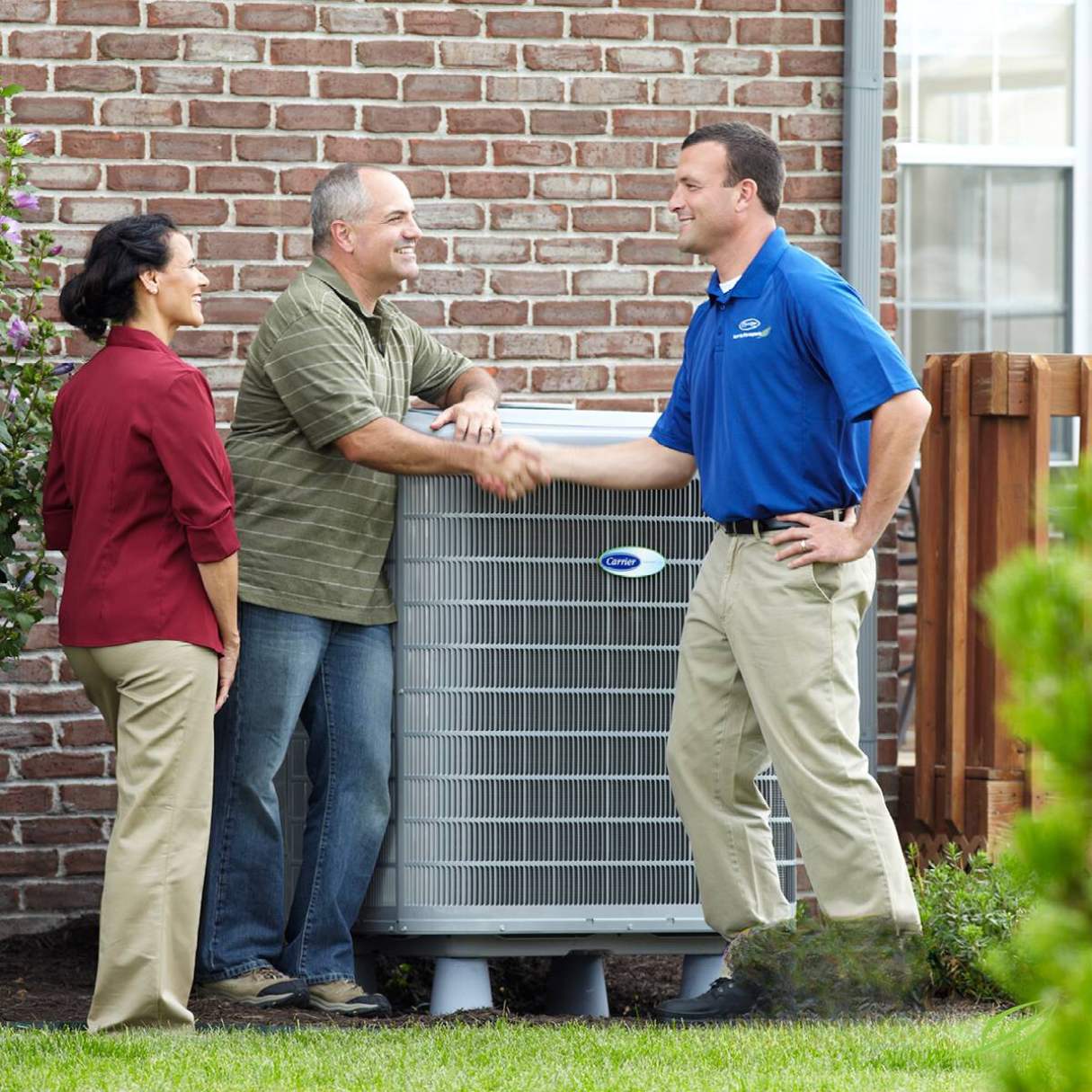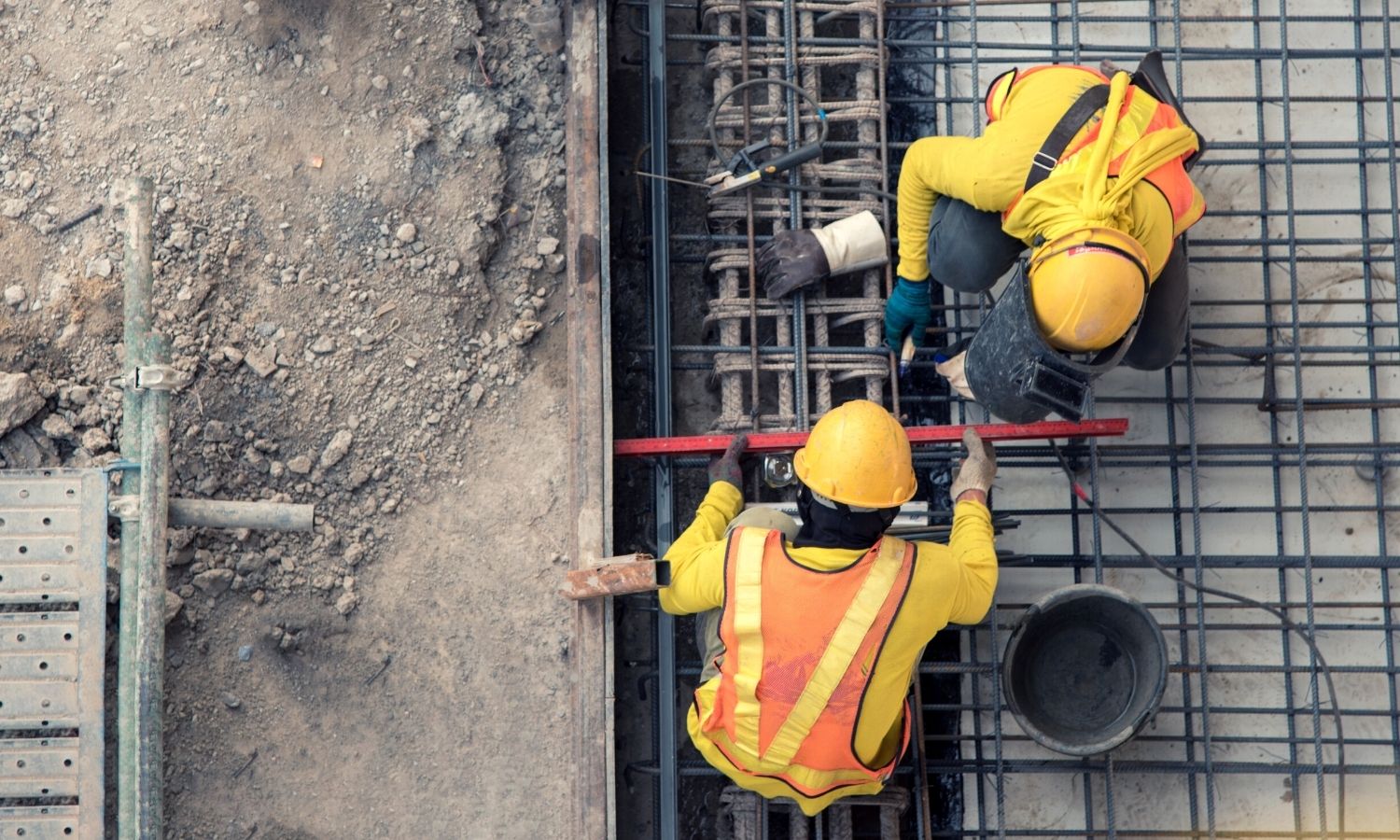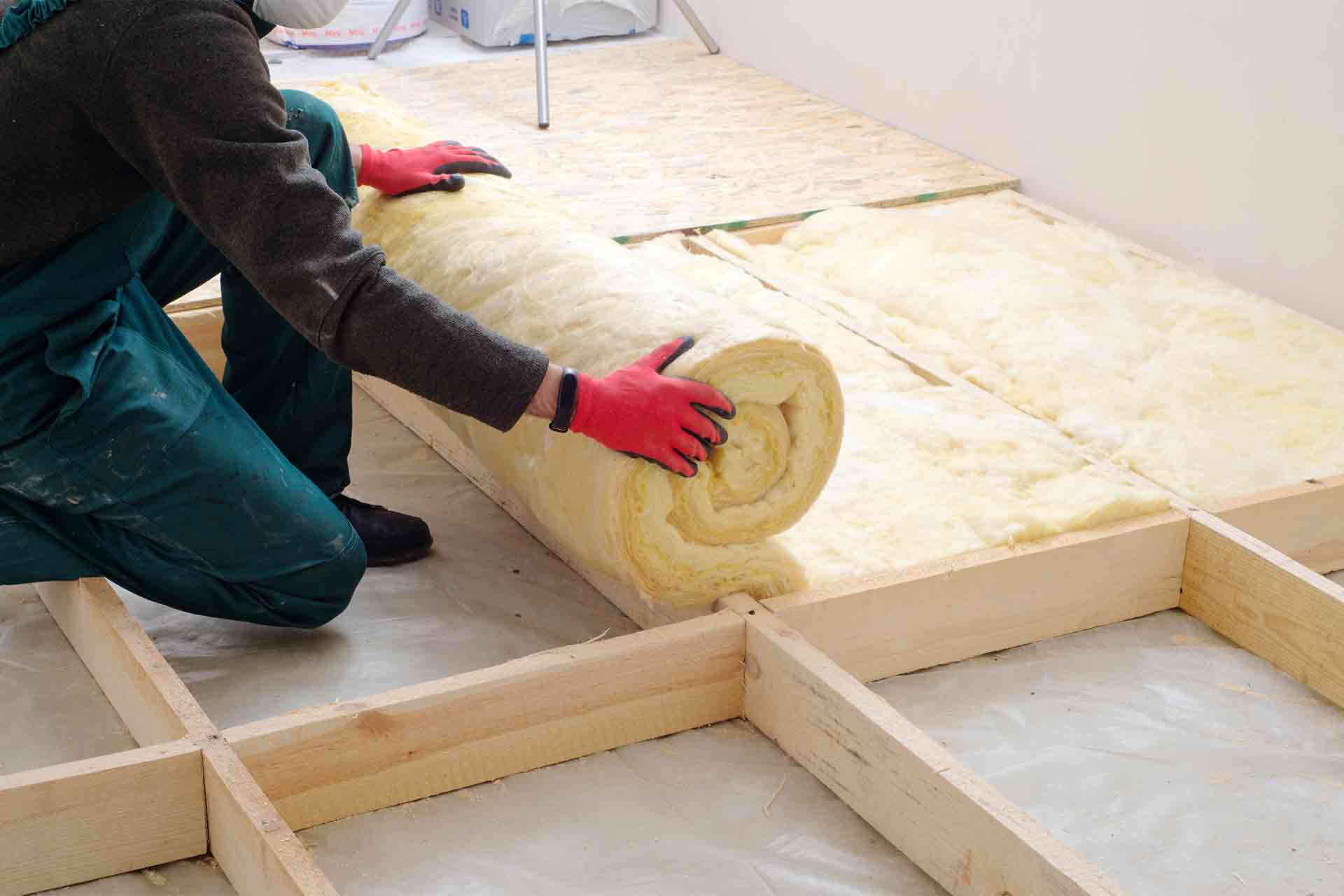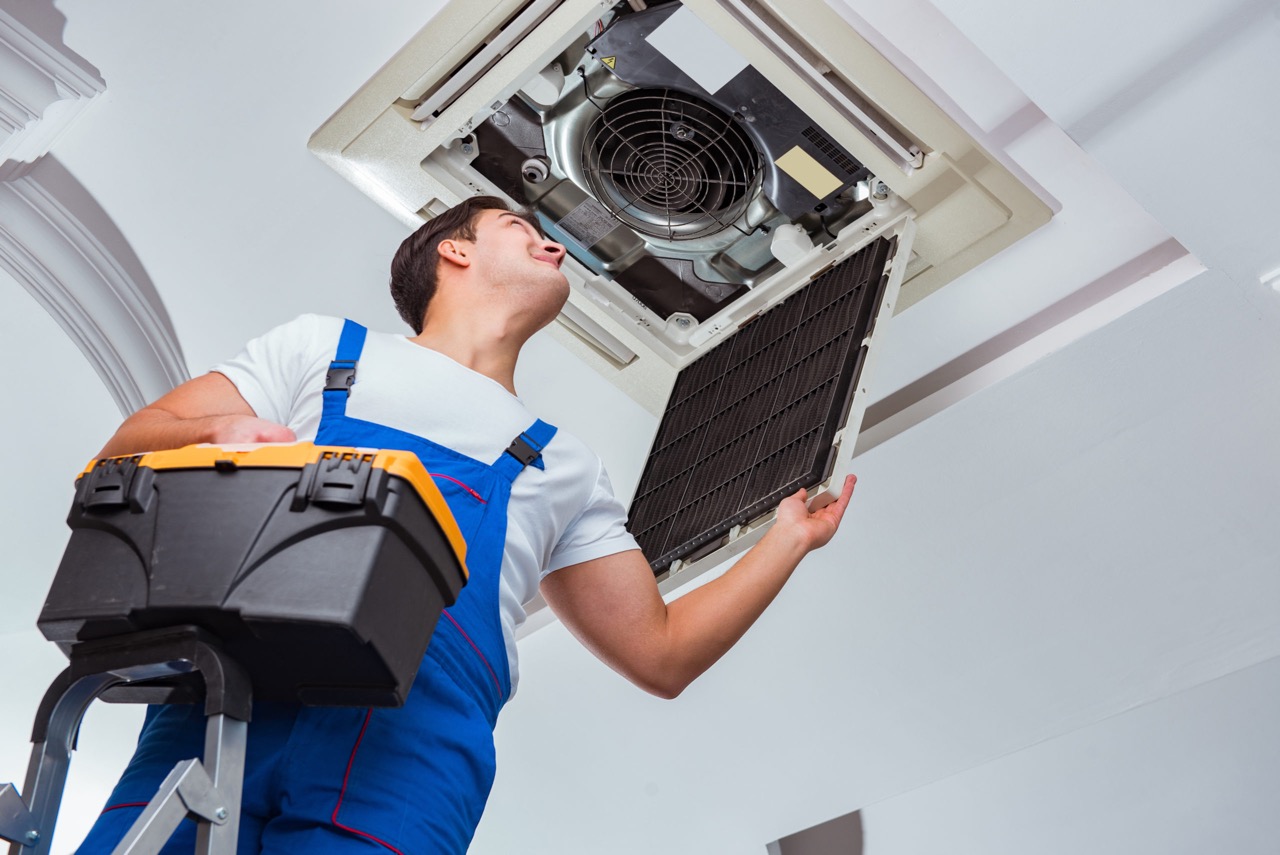

Articles
How Much Do HVAC Salesman Make
Modified: January 8, 2024
Discover how much HVAC salesmen make in this comprehensive article. Explore average salaries, commission structures, and tips for maximizing earnings.
(Many of the links in this article redirect to a specific reviewed product. Your purchase of these products through affiliate links helps to generate commission for Storables.com, at no extra cost. Learn more)
Introduction
When it comes to the heating, ventilation, and air conditioning (HVAC) industry, there are various roles that contribute to its success. One such role is that of an HVAC salesman. These professionals play a crucial role in generating sales and revenue for HVAC companies by promoting and selling their products and services.
In this article, we will explore the world of HVAC salesmen and delve into the factors that can influence their salaries. We will discuss the base salary, commission and bonus structure, average earnings, benefits and perks, as well as the factors that can increase their earnings. Additionally, we will touch upon the job outlook for HVAC salesmen.
It is important to note that the salaries of HVAC salesmen can vary significantly based on several factors, including experience, location, company size, and industry demand. By understanding these factors, HVAC salesmen can gain insights into their earning potential and make informed decisions about their career.
So, whether you are an aspiring HVAC salesman looking to enter the field or a curious individual seeking insights into this profession, let’s dive into the fascinating world of HVAC sales salaries.
Key Takeaways:
- HVAC salesmen can earn between $60,000 to $100,000 per year, with factors like experience, location, and performance influencing their income potential. Commission and bonuses play a significant role in boosting their earnings.
- The job outlook for HVAC salesmen is optimistic, with industry growth, technological advancements, and a focus on energy efficiency creating promising opportunities. Building strong customer relationships and staying informed on industry trends are key to success.
Read more: How Much Do HVAC Contractors Make
Factors Affecting HVAC Salesman Salaries
Several factors can influence the salaries of HVAC salesmen. Understanding these factors can give professionals in this field valuable insights into their earning potential and provide guidance on how to maximize their incomes. Let’s explore the main factors that can impact HVAC salesman salaries:
Experience:
Like in many other professions, experience plays a significant role in determining the salary of an HVAC salesman. As they gain more experience in the field, salesmen develop a deeper understanding of the industry, build a network of contacts, and refine their sales techniques. This expertise and track record of success can lead to higher salaries and better negotiating power.
Location:
The geographical location of an HVAC salesman can have a substantial impact on their salary. Salaries tend to be higher in areas with a higher cost of living and increased demand for HVAC services. Urban areas and regions with extreme climates often have higher demand for HVAC systems, leading to more significant sales opportunities and potentially higher commissions.
Company Size:
The size and reputation of the HVAC company can also affect the salary of a salesman. Larger companies often have more resources and a broader customer base, which can translate into higher sales volumes and potentially more significant earnings for salesmen. Additionally, established companies with a strong brand presence may offer higher base salaries and better commission structures to attract and retain top sales talent.
Read more: How Much Do HVAC Installers Make
Industry Demand:
The overall demand for HVAC systems and services can have a direct impact on the earning potential of salesmen in this field. Factors such as population growth, construction activity, and climate trends can influence the demand for HVAC systems. During periods of high demand, HVAC salesmen may benefit from increased sales opportunities, resulting in higher income potential.
Educational Background and Training:
An HVAC salesman’s educational background and training can also impact their earning potential. Further education in fields such as marketing, business management, or HVAC technology can provide salesmen with a more comprehensive understanding of the industry. Additionally, specialized training in sales techniques and customer relationship management can enhance their skill set and increase their value as sales professionals.
By considering these factors, HVAC salesmen can gain a better understanding of the various elements that influence their salaries. It is important to note that these factors are not mutually exclusive and can interact with one another to shape a salesman’s earning potential. With this knowledge, HVAC salesmen can take proactive steps to improve their skill set, target high-demand areas, and negotiate better compensation packages to maximize their income in this rewarding profession.
Base Salary for HVAC Salesman
The base salary for an HVAC salesman refers to the fixed amount of money that they receive for their services, regardless of their sales performance. While the base salary can vary depending on factors such as experience, location, and company size, it serves as a starting point for a salesman’s total compensation package.
The average base salary for HVAC salesmen can range between $40,000 to $60,000 per year, but it is important to note that this figure can vary widely. Entry-level salesmen may start with a base salary on the lower end of the range, while experienced professionals with a proven track record of success may command higher base salaries.
Factors that can influence the base salary include:
Experience:
As mentioned earlier, experience plays a vital role in determining the base salary of an HVAC salesman. Salesmen with several years of experience in the industry and a proven sales record are likely to command higher base salaries compared to those who are just starting out.
Read more: How Much Do Commercial HVAC Technicians Make
Company Size and Reputation:
The size and reputation of the HVAC company can also affect the base salary offered to a salesman. Established companies with a strong presence in the industry may offer higher base salaries to attract top talent and retain experienced sales professionals.
Location:
The geographical location can impact the base salary of an HVAC salesman. Areas with a higher cost of living or where HVAC services are in high demand may offer higher base salaries to compensate for the increased expenses or competitive market.
Education and Certifications:
HVAC salesmen with higher levels of education or industry-specific certifications may be eligible for higher base salaries. Additional education and certifications demonstrate a commitment to professional development and can increase a salesman’s value to the company.
It is important to note that while the base salary is a significant component of a salesman’s compensation, it does not reflect their total earnings potential. In many cases, HVAC salesmen have the opportunity to earn additional income through commission and bonuses based on their sales performance. Therefore, it is essential to consider the overall compensation package when evaluating the earning potential of an HVAC salesman.
Understanding the factors that impact the base salary for HVAC salesmen can guide professionals in negotiating their compensation packages and setting realistic salary expectations. By evaluating their experience, considering the company size and reputation, assessing the geographical location, and investing in education and certifications, HVAC salesmen can position themselves for higher base salaries and potentially increase their total earnings in this dynamic and rewarding field.
Commission and Bonus Structure
Commission and bonuses are integral components of an HVAC salesman’s compensation package. These incentives are designed to motivate salesmen to achieve their sales targets and reward them for their performance. The specific commission and bonus structure can vary depending on company policies, industry standards, and individual salesmen’s agreements. Let’s explore how commissions and bonuses work in the HVAC sales industry:
Commission:
Commission is a percentage-based payment that salesmen receive for each sale they make. The percentage can vary depending on the company and the type of product or service being sold. It is common for HVAC salesmen to earn a commission ranging from 2% to 10% of the total sale value.
Commission structures can be structured in different ways:
- Flat Rate Commission: Salesmen earn a fixed percentage on every sale they make, regardless of the sale value.
- Tiered Commission: Salesmen earn different commission rates based on their sales volume. As they achieve higher sales targets, their commission percentage increases.
- Percentage Increase Commission: Salesmen earn an increased commission percentage for sales that surpass a predetermined threshold. For example, if a salesman exceeds a specific sales target, their commission percentage may increase from 3% to 5%.
Bonuses:
Bonuses are additional payments that salesmen receive for meeting or exceeding specific performance goals. These goals can vary depending on the company and can include criteria such as total sales volume, customer satisfaction ratings, or achieving sales targets within a specific time frame.
Types of bonuses that HVAC salesmen may be eligible for include:
- Performance-Based Bonuses: Salesmen receive a bonus based on meeting or surpassing specific sales targets or performance indicators.
- Year-end Bonuses: Annual bonuses awarded based on the salesman’s overall performance throughout the year. These bonuses can be tied to company profitability or individual performance.
- Sales Incentive Bonuses: Additional bonuses given to salesmen who excel in specific sales campaigns or promotions.
It is essential for HVAC salesmen to have a clear understanding of their commission and bonus structure and the specific criteria they need to meet to be eligible for these additional payments. Regular communication with management or the human resources department can help clarify any questions regarding commission and bonus calculations.
By leveraging the commission and bonus structure, HVAC salesmen have the opportunity to significantly increase their earnings. By consistently achieving their sales targets, exceeding customer expectations, and taking advantage of sales incentive programs, salesmen can reap the rewards of their hard work and dedication in this dynamic and challenging industry.
Average Earnings for HVAC Salesman
When it comes to determining the average earnings for HVAC salesmen, it is important to consider the different elements of their compensation package, including base salary, commissions, and bonuses. The total earnings of an HVAC salesman can vary widely based on factors such as experience, location, company size, industry demand, and individual sales performance. Let’s delve into the average earnings for HVAC salesmen:
Base Salary:
The base salary for HVAC salesmen can range from $40,000 to $60,000 per year, depending on various factors like experience, company size, and location. However, it is important to note that the base salary is just one component of an HVAC salesman’s earnings, and the overall income can be significantly higher when considering commissions and bonuses.
Read more: How Much Does A HVAC Installer Make
Commissions:
Commissions form a significant portion of an HVAC salesman’s earnings. The commission rate can vary between 2% and 10% of the total sale value. It is crucial to note that the commission structure can differ from one company to another and depends on the type of product or service being sold. With commission-based earnings, HVAC salesmen have the opportunity to earn more as they increase their sales volume.
Bonuses:
Bonuses are another way for HVAC salesmen to increase their earnings. These additional payments are often based on meeting or surpassing specific performance goals, such as achieving sales targets, maintaining customer satisfaction levels, or excelling in sales campaigns. The amount of bonuses can vary depending on company policies and the salesman’s overall performance.
Total Earnings:
Considering base salary, commission, and bonuses, average earnings for HVAC salesmen can range from $60,000 to $100,000 per year. However, exceptional salesmen with significant experience, exceptional sales records, and high-demand territories can earn well above this range.
It is important to note that these figures are average estimates and can vary based on various factors mentioned earlier. Additionally, economic factors, market trends, and industry demand can also influence average earnings for HVAC salesmen. It is always advisable for HVAC salesmen to stay updated with industry trends and strive for professional growth to maximize their earning potential.
While discussing average earnings, it is also worth mentioning that the HVAC sales profession offers a unique opportunity for salesmen to increase their earnings through performance-based incentives. With the right skills, knowledge, and dedication, HVAC salesmen have the potential to surpass average earnings and build a rewarding and financially lucrative career in this industry.
Benefits and Perks for HVAC Salesman
Alongside competitive salaries, HVAC salesmen often enjoy a range of benefits and perks that add value to their compensation package. These additional incentives can vary depending on the company and industry standards. Let’s explore some common benefits and perks that HVAC salesmen can expect:
Read more: How Much Is An HVAC Compressor
Health Insurance:
Many HVAC companies offer health insurance coverage to their salesmen. This can include medical, dental, and vision insurance plans. Having access to comprehensive health coverage provides peace of mind and helps to mitigate potential healthcare expenses.
Retirement Plans:
Some HVAC companies may offer retirement plans such as 401(k) or pension plans to help salesmen save for their future. These plans allow salesmen to contribute a portion of their income towards retirement and may include employer matching contributions, which can boost long-term savings.
Paid Time Off:
Paid time off, including vacation days and personal leave, is an important benefit for HVAC salesmen. This allows them to take time off for personal reasons, relaxation, or family commitments without sacrificing their income.
Flexible Work Schedule:
Flexibility in work schedules is often appreciated by HVAC salesmen. This can include the option to work from home on certain days, flexible start and end times, or compressed workweeks. This flexibility can help salesmen balance their personal and professional lives more effectively.
Read more: How Much Are HVAC Filters
Company Vehicle or Car Allowance:
Many HVAC companies provide company vehicles or car allowances to their salesmen. This allows salesmen to travel to client locations and conduct sales visits efficiently. Having access to a company vehicle or receiving a car allowance helps salesmen offset the costs associated with transportation.
Cell Phone and Technology Allowance:
Given the importance of staying connected with clients and management, some companies provide cell phone allowances or cover the costs of their salesmen’s phone plans. Additionally, salesmen may be provided with company-provided laptops or tablets to support their daily operations.
Training and Professional Development:
Investing in training and professional development is crucial for the success of any sales professional. HVAC companies may offer opportunities for salesmen to attend industry conferences, sales training workshops, or participate in ongoing professional development programs. These initiatives help salesmen enhance their skills, stay updated with industry trends, and advance their careers.
It is important for HVAC salesmen to carefully review the benefits and perks offered by potential employers. While the above benefits are common in the industry, specific offerings can vary from company to company. Understanding and considering these benefits in addition to salary can help salesmen make informed decisions about their career choices.
By taking advantage of these benefits and perks, HVAC salesmen can not only enjoy a more well-rounded compensation package but also enhance their job satisfaction and overall well-being, leading to a more fulfilling and rewarding career in the HVAC sales industry.
Factors That Can Increase HVAC Salesman Earnings
There are several factors that can contribute to increasing the earnings of HVAC salesmen. By understanding and leveraging these factors, sales professionals in the HVAC industry can maximize their earning potential. Let’s explore some key factors that can lead to higher earnings:
Read more: How Much Do Construction Engineers Make
Experience and Expertise:
As HVAC salesmen gain more experience in the industry, they become more knowledgeable about the products, services, and customer needs. This expertise can result in increased sales success and higher earnings. Experienced salesmen often have a deeper understanding of the market and customer preferences, allowing them to effectively communicate the value of HVAC solutions and close more deals.
Sales Performance:
Achieving and exceeding sales targets can significantly impact an HVAC salesman’s earnings. Salesmen who consistently meet or exceed their sales goals demonstrate their value to the company and can negotiate higher commission rates or bonuses as a result. By consistently delivering results and driving revenue growth, salesmen can earn more through increased commissions and performance-based incentives.
Networking and Relationship Building:
Building and nurturing relationships with clients and industry contacts can be instrumental in increasing earnings. HVAC salesmen who actively network, attend industry events, and maintain strong customer relationships can benefit from more referrals, repeat business, and upselling opportunities. The trust and rapport established with clients can lead to larger sales volumes and more substantial commission earnings.
Continuous Learning and Professional Development:
Investing in continuous learning and professional development can enhance an HVAC salesman’s skills and knowledge. By staying up to date with industry trends, technology advancements, and sales techniques, salesmen can better serve their clients and position themselves as experts in the field. This expertise can translate into higher credibility, improved sales performance, and ultimately, increased earnings.
Read more: How Much Do Construction Supervisors Make
Geographic Location:
The geographic location where an HVAC salesman operates can impact their earning potential. Areas with a higher demand for HVAC services, such as regions with extreme climates or urban areas with a larger customer base, can offer more significant sales opportunities. Salesmen working in these high-demand areas may have access to more potential clients, leading to increased sales volumes and higher earnings.
Company Performance and Bonuses:
The overall performance of the HVAC company can also impact an HVAC salesman’s earnings. If the company achieves strong sales growth and exceeds financial targets, it may offer additional bonuses or incentives to reward the sales team. By aligning themselves with successful and thriving companies, HVAC salesmen have the opportunity to benefit from company-wide performance bonuses, which can significantly increase their earnings.
By focusing on these factors, HVAC salesmen can take proactive steps to increase their earning potential. They can continually enhance their skills, prioritize relationship-building, and target high-demand areas. Additionally, by selecting companies with a strong track record and a culture of performance-based rewards, salesmen can position themselves for higher earnings and long-term career success in the HVAC industry.
Job Outlook for HVAC Salesman
The job outlook for HVAC salesmen is generally positive, with promising opportunities for those interested in pursuing a career in sales within the heating, ventilation, and air conditioning industry. The demand for HVAC systems and services continues to grow, driven by factors such as population growth, economic development, and the need for energy-efficient solutions. Let’s explore the job outlook for HVAC salesmen:
Industry Growth:
The HVAC industry is projected to experience steady growth in the coming years. As the need for energy-efficient and environmentally friendly HVAC systems increases, HVAC companies will continue to invest in sales and marketing efforts to promote their products and services. This presents a favorable landscape for HVAC salesmen as they play a crucial role in generating revenue and driving the growth of the industry.
Read more: How Much Do Chimney Sweeps Make
Advancements in Technology:
The HVAC industry is constantly evolving with advancements in technology and new product innovations. HVAC salesmen who stay up to date with the latest trends and developments can position themselves as valuable resources for customers seeking cutting-edge solutions. By adapting to new technologies and effectively communicating their benefits, salesmen can maintain a competitive edge and contribute to their success in the field.
Focus on Energy Efficiency:
Energy efficiency is a growing concern in the HVAC industry. As governments and consumers increasingly prioritize sustainable practices, there is a greater emphasis on energy-efficient HVAC systems. HVAC salesmen who understand and promote energy-efficient solutions can capitalize on this trend, as customers seek ways to reduce energy consumption and lower utility costs. The ability to effectively communicate the benefits of energy-efficient systems can contribute to increased sales and job opportunities for HVAC salesmen.
Customer Relationship Building:
The HVAC industry heavily relies on building strong relationships with customers. HVAC salesmen who excel in relationship building and customer service skills are well-positioned for success. By establishing trust, providing personalized solutions, and delivering excellent post-sales support, salesmen can foster long-term customer loyalty. Satisfied customers are more likely to recommend the services of the HVAC company and the salesmen they worked with, leading to a strong referral network and favorable job prospects.
Varied Opportunities:
The HVAC industry offers a wide range of opportunities for HVAC salesmen. They can work for manufacturers, distributors, or contracting companies, providing flexibility in terms of the environment they prefer and the specific products and services they want to sell. This variety of opportunities allows salesmen to find the right fit for their skills and interests, catering to their personal and career aspirations.
In summary, the job outlook for HVAC salesmen is optimistic. The continual growth of the HVAC industry, advancements in technology, the focus on energy efficiency, and the importance of customer relationship building create a favorable environment for HVAC salesmen. By staying knowledgeable in the industry, honing their sales skills, and embracing emerging trends and technologies, salesmen can enjoy a rewarding and prosperous career in the HVAC industry.
Read more: Landscaping: How Much Do You Make
Conclusion
In conclusion, HVAC salesmen play a vital role in the success of the heating, ventilation, and air conditioning industry. Their ability to promote and sell HVAC products and services is crucial in generating sales and revenue for companies operating in this sector. Understanding the factors that influence HVAC salesmen salaries, such as experience, location, company size, and industry demand, provides valuable insights into their earning potential.
Base salary serves as the foundation of an HVAC salesman’s compensation package, but additional income from commissions and bonuses can significantly increase their earnings. Commission structures, which vary from company to company, offer salesmen the opportunity to earn a percentage of the total sale value. Bonuses, tied to meeting sales targets or exceeding performance goals, further incentivize salesmen to achieve their best.
It is worth noting that benefits and perks, such as health insurance, retirement plans, flexible work schedules, and professional development opportunities, are often included in HVAC salesmen’s compensation packages. These additional incentives enhance job satisfaction and overall well-being, contributing to a fulfilling career in the industry.
The job outlook for HVAC salesmen is positive, with the industry experiencing steady growth and advancements in technology. As energy-efficiency and sustainability become increasingly important, HVAC salesmen who stay informed on the latest trends and communicate the benefits of energy-efficient solutions will be well-positioned for success.
Building strong relationships with customers and providing excellent customer service are also crucial for HVAC salesmen. Satisfied customers are more likely to provide referrals, contributing to a strong network and increased job opportunities.
In conclusion, the field of HVAC sales offers promising prospects for those seeking a career in sales within the heating, ventilation, and air conditioning industry. By understanding the factors that impact their salaries, taking advantage of commission and bonus structures, embracing opportunities for professional development, and building strong relationships with customers, HVAC salesmen can maximize their earning potential and enjoy a successful and rewarding career in this dynamic industry.
Frequently Asked Questions about How Much Do HVAC Salesman Make
Was this page helpful?
At Storables.com, we guarantee accurate and reliable information. Our content, validated by Expert Board Contributors, is crafted following stringent Editorial Policies. We're committed to providing you with well-researched, expert-backed insights for all your informational needs.






0 thoughts on “How Much Do HVAC Salesman Make”